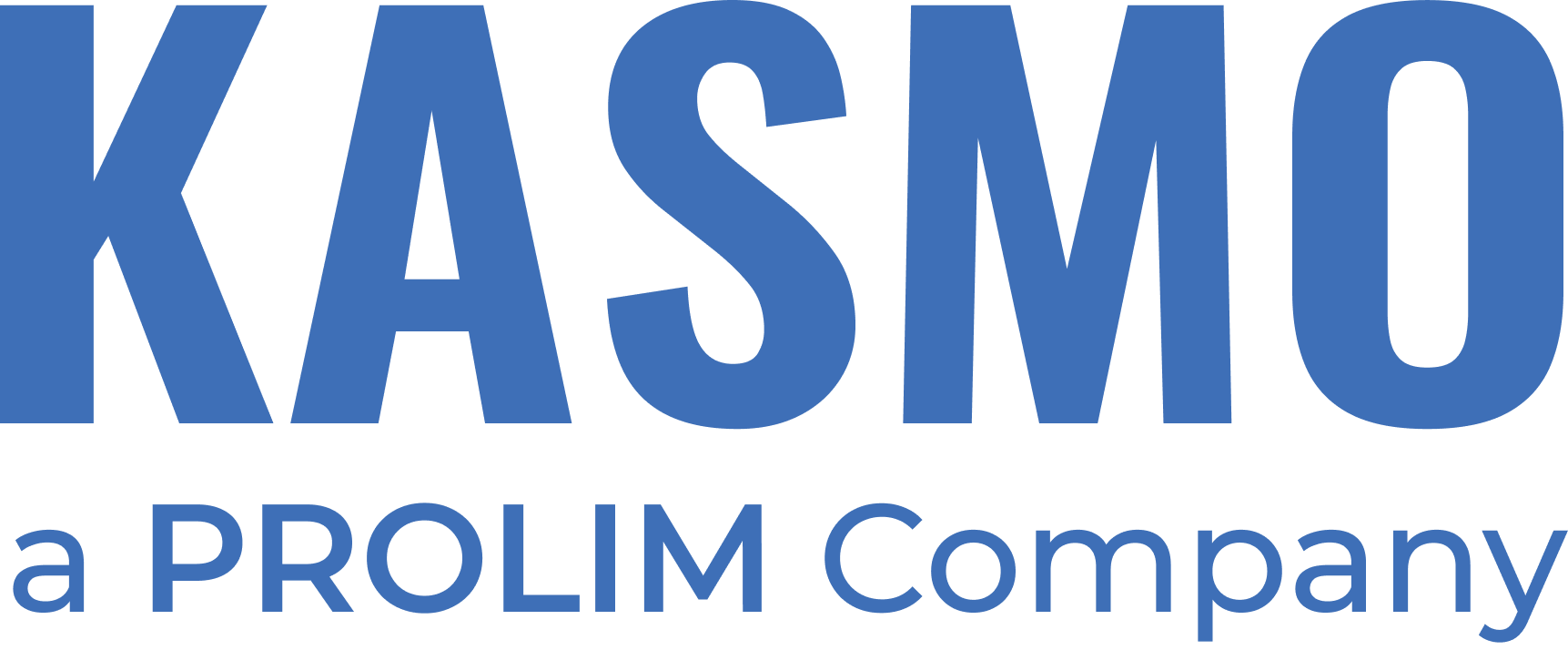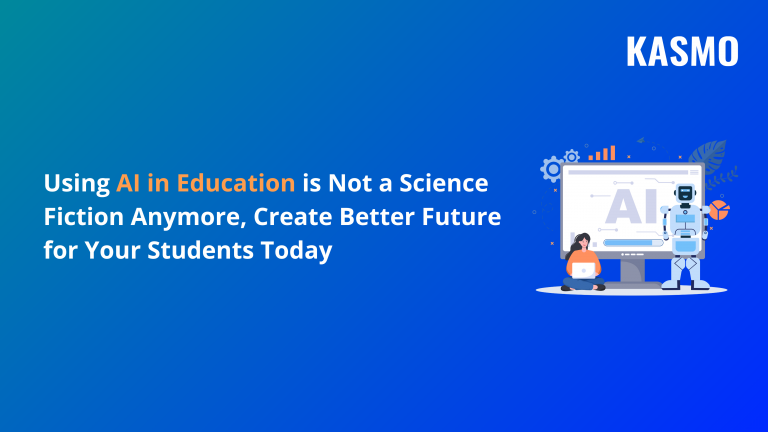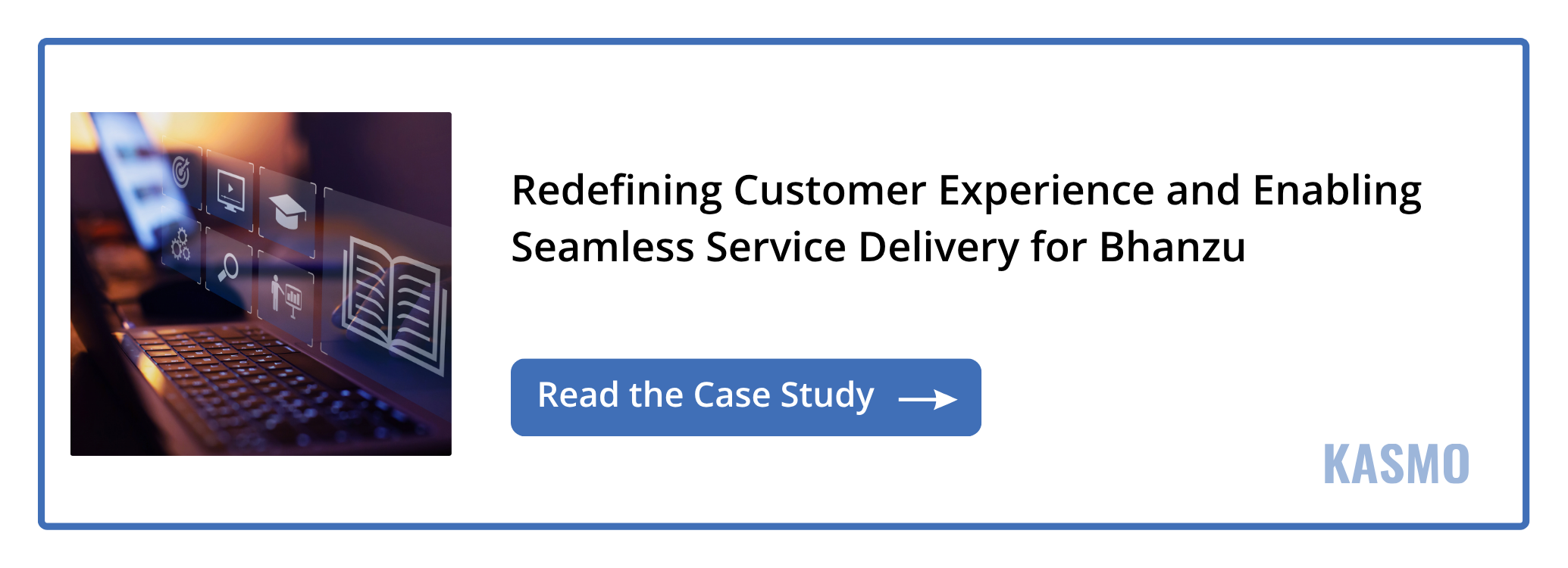Using AI in Education: Why is It Necessary?
According to Forbes, 60% of educators are using AI in classrooms. These educators have also agreed that integrating AI with their curriculum and teaching process has helped achieve numerous goals. When a survey was conducted it was observed that:

Source: Forbes
Using AI in education has helped these educators enable a more streamlined and smooth teaching and learning process. Not only the students, but educators are using AI to simplify routine tasks and offering personalized learning support to students.
In schools and universities where students often lack personalized guidance, AI can step in as a powerful support system. For example, some education nonprofits are already using AI-powered tools to send timely reminders, generate personalized academic content, or match students with career coaches. These tools help close information gaps, especially for first-generation learners who may not have had access to the same resources as their peers.
Additionally, AI is vital in addressing challenges faced by first-generation students, under-resourced schools, and overburdened educators. The use of AI in education is helping institutions provide timely, customized support to learners who need it the most.
AI doesn’t replace teachers or educators; it amplifies their impact. It ensures students don’t fall through the cracks due to a lack of attention or resources and helps educators focus their time on creating more student-focused content.
6 Ways AI in Education is Making a Difference
Personalized Learning Paths
AI can analyze student behavior, performance, and learning preferences to tailor content. Whether it’s recommending specific study materials or adapting the pace of instruction, AI helps ensure that learning is aligned with each student’s unique needs.
Automated Administrative Tasks
Educators often spend hours on administrative work. AI tools can automate these processes, freeing up time for more meaningful teacher-student interactions.
Smart Content Generation
AI-powered systems can pull relevant data from multiple sources and create easy-to-understand content for students, parents, or educators. This ensures that all stakeholders have timely access to important information.
Enhanced Coaching and Mentorship
AI-powered platforms are now supporting academic coaching by providing data-driven insights into student progress. These tools enable mentors and coaches to make informed decisions and offer more targeted support to students.
Simulated Learning Environments
AI is being used to help teachers practice and refine their skills in simulated settings. This creates a safe environment for professional development and improves teaching habits.
Easy Access to Career Guidance
AI chatbots and mobile apps are helping students, especially those from underserved communities, access career advice, resume support, mock interview prep, and job matching tools.
Benefits of Using AI in Education
The use of AI in education is transforming how both students and educators experience the learning process. By moving away from traditional, one-size-fits-all teaching models, AI allows for greater personalization, smarter content delivery, and improved classroom efficiency.
For Students
Every student learns differently. Some grasp complex topics quickly, while others need additional time and support. AI enables schools and EdTech businesses to create adaptive learning environments that adjust to each student’s needs and pace. This tailored approach improves comprehension, boosts motivation, and helps learners feel more confident in their progress.
Here are some of the key benefits of using AI in education for students:
- Personalized Learning: AI-powered platforms assess each learner’s progress and customize content accordingly. Students receive extra support where needed and are challenged with advanced material when they’re ready, without waiting for the rest of the class to catch up.
- Improved Engagement: Adaptive content, visual aids, and interactive modules make learning more enjoyable. When students feel that lessons are aligned with their interests and goals, they’re more likely to stay motivated.
- Enhanced Support for Diverse Learning Styles: Whether a student is a visual, auditory, or hands-on learner, AI can adapt. Simulations, quizzes, and voice-enabled tools allow students to accommodate various learning techniques.
- Stronger Concept Retention: Through continuous analysis, AI can detect performance gaps and recommend timely intervention for educators. This approach helps students grasp foundational concepts more thoroughly and retain them longer.
- Accessibility and Inclusivity: Tools powered by natural language processing, speech recognition, and text-to-speech help ensure that students with different needs can access educational content comfortably and independently.
- Development of Soft Skills: Beyond academics, AI-powered platforms promote skills such as problem-solving, creativity, and critical thinking. Personalized tasks and real-time feedback encourage students to approach challenges thoughtfully and with confidence.
For Educators
According to the World Economic Forum, 73% of educators are seeing significant benefit of using AI in education. With growing class sizes and increasing administrative demands, AI provides massive support to teachers and enables them to focus more on student engagement and less on paperwork.
Here’s how AI in education benefits teachers and academic institutions:
- Automated Administrative Work: Tasks like grading and attendance tracking can be time-consuming. AI tools automate these activities, allowing educators to make more time for classroom instruction and student mentoring.
- Data-Driven Lesson Planning: With access to real-time performance data, teachers can pinpoint where students are struggling and adjust their lesson plans accordingly. This makes instruction more relevant and targeted.
- Curriculum Optimization: AI analyzes large volumes of student data to identify academic trends and gaps. These insights help educators revise their curriculum to better meet learning objectives and student needs.
- Efficient Assessments and Feedback: AI-powered evaluation tools reduce grading bias and provide fast, detailed feedback. This helps educators identify learning patterns and quickly adapt their teaching approach.
- Better Time and Resource Management: With routine tasks handled by AI, teachers have more time to engage in high-impact activities, whether it’s one-on-one support, collaborative projects, or professional development.
Why Educational Institutions Need to Use AI Agents
As education systems evolve, so do the tools that support teaching and learning. Among the most promising developments is the rise of AI agents, that can analyze data, adapt their behavior, and interact with students and educators in real time. These agents are dynamic, responsive, and capable of providing personalized experiences.
Here’s how AI agents are transforming education:

Hyper-Personalized Instruction
AI agents empower educators to offer hyper-personalized support to students by continuously analyzing each student’s progress, preferences, and learning style. These agents tailor how educational content is delivered and if the content is enabling students to keep engaged and achieve success. This level of customization ensures that learners receive the exact type of guidance they need – whether it’s extra practice, a change in content format, or a revisit to previous topics.
Real-Time Feedback
AI agents provide immediate, targeted feedback to students during the learning process. When a student makes a mistake, the agent not only corrects it but also explains the reasoning and follows up with similar educational activities tailored to the student’s knowledge base. This continuous, real-time support helps learners build confidence while accelerating their progress through difficult subjects.
Early Intervention and Risk Detection
One of the major challenges many educational institutions face is identifying when a student is falling behind. AI agents are capable of monitoring patterns in candidate’s performance and engagement to proactively flag potential issues to educators. Whether it’s a drop in participation, a string of low scores, or inconsistent activity, AI agents can alert educators or suggest interventions automatically. This proactive approach enables institutions to offer timely support and prevent long-term academic setbacks.
Scalable Student Support
AI agents enable institutions to deliver one-on-one support, whether it is in classrooms or fully remote environments. These agents act as virtual assistants, ready to answer questions, explain complex topics, or offer guidance on assignments. AI Agents adapt quickly to each student’s progress and interaction style and help educational organizations bridge the resource gap that often limits personalized instruction.
How Salesforce Education Cloud is creating a Difference in the Academic Industry?
As educational institutions strive to meet the rising expectations of modern learners, tools like Salesforce Education Cloud are helping them deliver more connected, data-driven, and personalized experiences. This unified platform supports every stage of the student’s journey.
Here’s how Education Cloud is transforming operations across the education lifecycle:
Smarter Student Recruitment and Admissions
Salesforce Education Cloud empowers admissions teams with AI-driven tools like Agentforce for Education, enabling them to engage prospective students through instant, personalized communication. Features like intelligent application scoring, timeline views, and a unified applicant portal ensure a seamless onboarding experience. With automation handling routine queries and scheduling, staff can focus on building meaningful connections with high-potential candidates.
Flexible and Intelligent Academic Operations
From curriculum planning to registration management, Education Cloud helps academic teams streamline operations at scale. Institutions can easily design degree programs, certificates, or micro-credentials using intuitive tools like drag-and-drop program builders. With 360-degree student profiles, educators can track progress and build tailored degree paths that align with student goals and institutional outcomes.
Personalized Student Success and Support
With features like customizable care plans, appointment scheduling, and holistic advising dashboards, institutions can deliver proactive support tailored to each learner’s academic and personal development. AI-powered insights give advisors the information they need to identify the gaps in education early and guide students accordingly. By leveraging Agentforce, institutions can deliver 24/7 support through intelligent agents that understand student needs and recommend the next steps.
Advancing Alumni Engagement and Fundraising
Education Cloud simplifies candidate-teacher engagement with its unified platform. With built-in candidate segmentation, advanced research tools, and personalized engagement journeys, institutions can cultivate stronger alumni connections and increase fundraising efficiency.
Powered by a Connected and Advanced Ecosystem
Education Cloud can be integrated with multiple platforms and tools that enhances its power:
- Agentforce: Build custom AI agents to support students and staff around the clock.
- Marketing Cloud: Deliver tailored communication throughout the candidate’s lifecycle.
- Tableau: Use AI-powered analytics for smarter institutional decisions.
- Slack: Foster real-time collaboration between students, faculty, and administrators.
Conclusion
The growing practice of using AI in education is redefining how schools, universities, and EdTech companies support learners and educators. Whether it’s through personalized learning paths, intelligent tutoring systems, or AI-powered student support portals, leveraging artificial intelligence and higher education materials help organizations improve engagement, create better outcomes for students, and make a more efficient operation.
For institutions navigating limited resources and rising student expectations, using AI in education helps in creating more adaptive, inclusive, and data-driven learning environments that meet students according to their capabilities.
As AI-powered platforms and tools continue to evolve, educational institutions should focus on integrating AI not to replace educators, but to empower their capabilities. With the right tools and strategy, AI can help institutions build an education system that works better for everyone.




